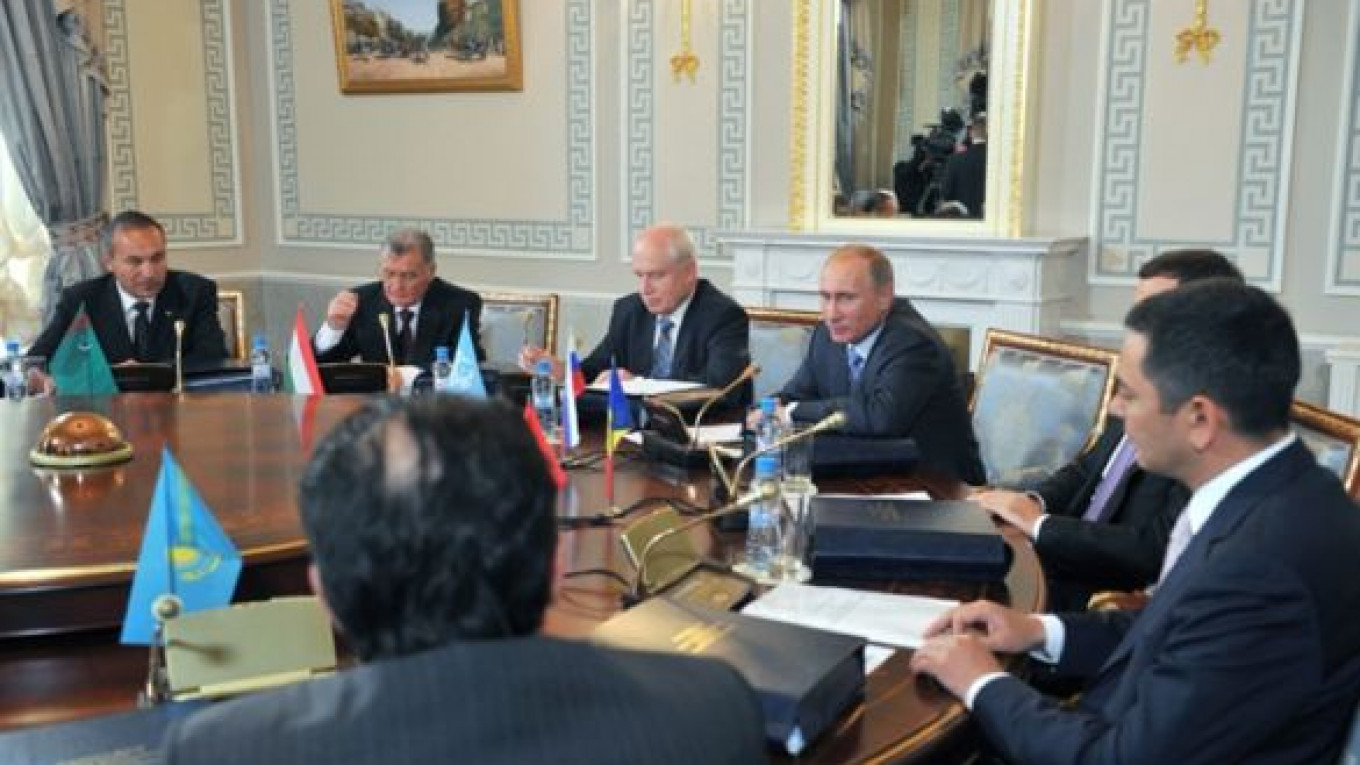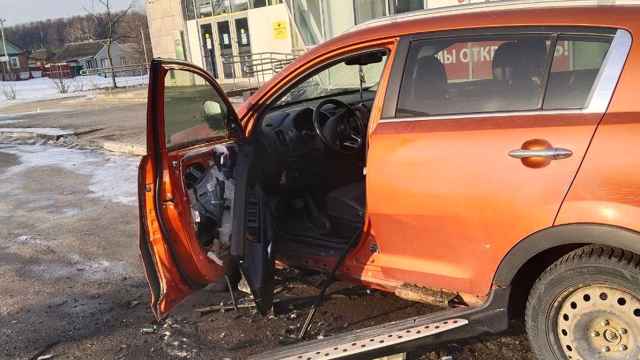Russia will learn from the European Union and seek to avoid its mistakes as it crafts an economic bloc of former Soviet states, said Alexei Likhachyov, the deputy economy minister overseeing the effort.
Russia, part of a customs union with Belarus and Kazakhstan, plans further integration to create the Eurasian Economic Union. Prime Minister Vladimir Putin called the three-state agreement a "historic landmark."
The country is embarking on its latest attempt to integrate former Soviet nations as EU leaders are holding their second emergency summit in four days to reach an agreement to contain the region's sovereign-debt crisis. The 27-country bloc's development over more than half a century may hold lessons for Russia as it builds its economic alliance stretching from the Polish border to the Pacific Ocean.
"The EU is definitely a pioneer, and we can learn from them," Likhachyov said in an interview last week. "We're discussing a classical integration, which will be deliberate and considered, and take into account all of the EU's experience, both positive and negative."
The customs union will allow the free movement of goods, capital and workers and will take on some regulatory functions from Jan. 1. From 2015, the countries will form the Eurasian Economic Union with unified visa and migration rules.
Some structures needed for closer integration are already in place among post-Soviet states because of existing formations such as the Commonwealth of Independent States, the Eurasian Economic Community and Russia's union with Belarus, Likhachyov said.
"We're going to be particularly cautious with two things: accepting new members and the speed with which power is transferred to the supranational level," he said. "At a minimum, until 2015 we're talking exclusively about an economic union."
Russia, Ukraine, Kazakhstan, Belarus, Armenia, Kyrgyzstan, Tajikistan and Moldova signed a free-trade pact last week. Azerbaijan, Turkmenistan and Uzbekistan, the remaining three members of the CIS, may sign by the end of this year.
The 11 countries have a combined population of 277 million, with an economy worth $1.9 trillion, on par with Brazil and Italy, according to International Monetary Fund figures.
The integration will aim to be compatible with the EU, with the goal of one day creating a free-trade area including the two organizations, Likhachyov said.
"Ultimately we'd all like to be living in a unified space from Lisbon to the Kuril Islands," he said. "So that goods, capital and, most important, people could move about that space without unnecessary limitations."
Ukraine, which shares borders with four EU countries and is seeking a trade agreement with the bloc, “will always be an important part” of both the Eurasian Union and the EU, Likhachyov said.
Putin has tried to convince its Western neighbor to join the customs union, saying entry would help its request for cheaper natural gas.
Ukraine may apply to join, Deputy Prime Minister Serhiy Tigipko said on his web site last week. The country is seeking to reduce the price it pays Russia for the fuel as it works to unlock payments from a $15.6 billion International Monetary Fund bailout without having to increase household energy prices. The country would stand to gain $9 billion a year from membership, Putin said Oct. 6.
While the Russian-Belarussian-Kazakh customs union’s rules would take precedence over trade deals with third countries, they would not keep members from joining the WTO, Likhachyov said.
Russia, Belarus and Kazakhstan are preparing to ratify an agreement that would give WTO rules priority, should any of the members join the global trade arbiter, said Likhachyov, who was a member of Russia's negotiating team on the accession talks from 2000 to 2007.
"We're not in any way setting the Eurasian Economic Union in opposition to the World Trade Organization," he said.
A Message from The Moscow Times:
Dear readers,
We are facing unprecedented challenges. Russia's Prosecutor General's Office has designated The Moscow Times as an "undesirable" organization, criminalizing our work and putting our staff at risk of prosecution. This follows our earlier unjust labeling as a "foreign agent."
These actions are direct attempts to silence independent journalism in Russia. The authorities claim our work "discredits the decisions of the Russian leadership." We see things differently: we strive to provide accurate, unbiased reporting on Russia.
We, the journalists of The Moscow Times, refuse to be silenced. But to continue our work, we need your help.
Your support, no matter how small, makes a world of difference. If you can, please support us monthly starting from just $2. It's quick to set up, and every contribution makes a significant impact.
By supporting The Moscow Times, you're defending open, independent journalism in the face of repression. Thank you for standing with us.
Remind me later.






